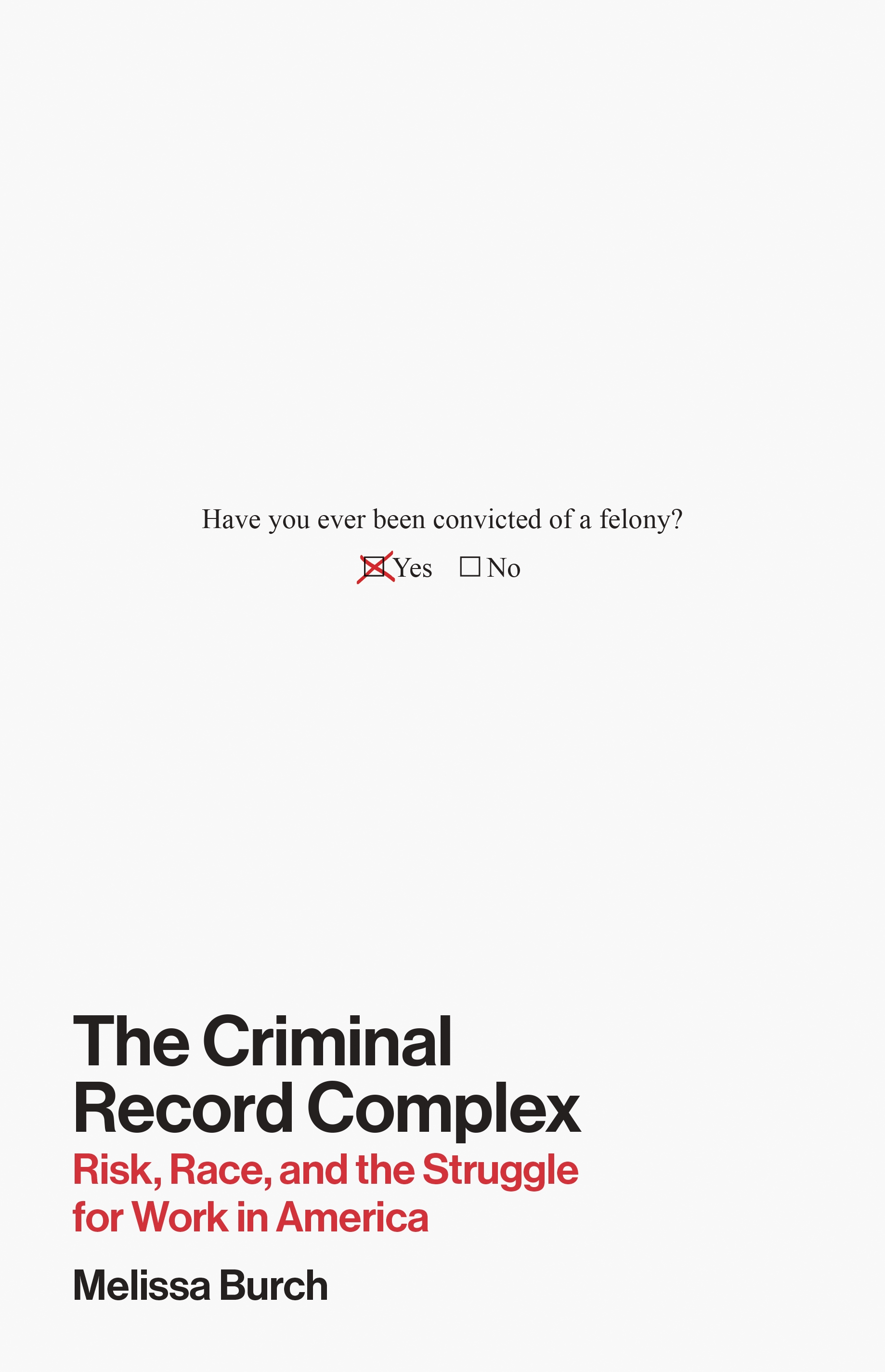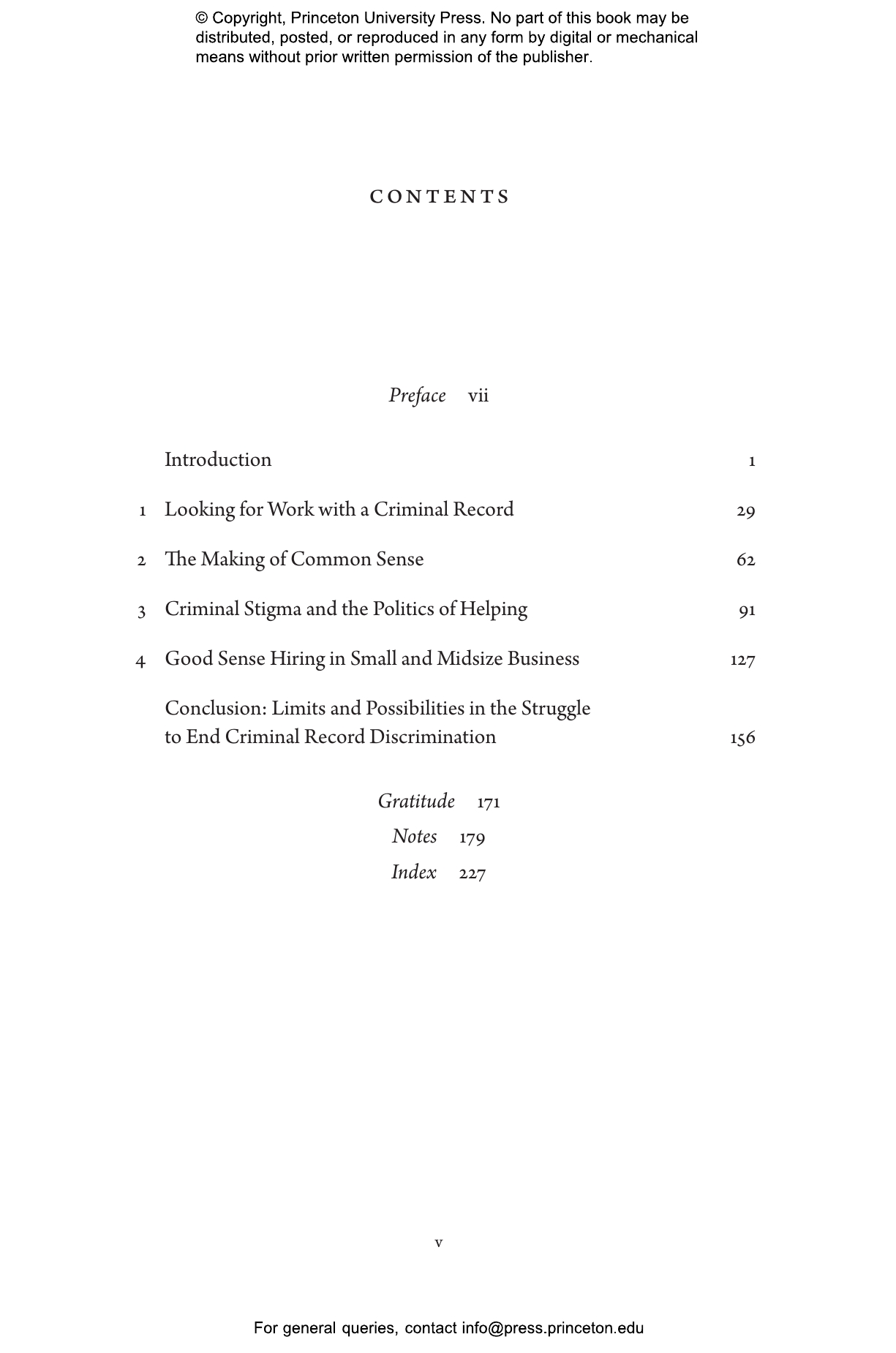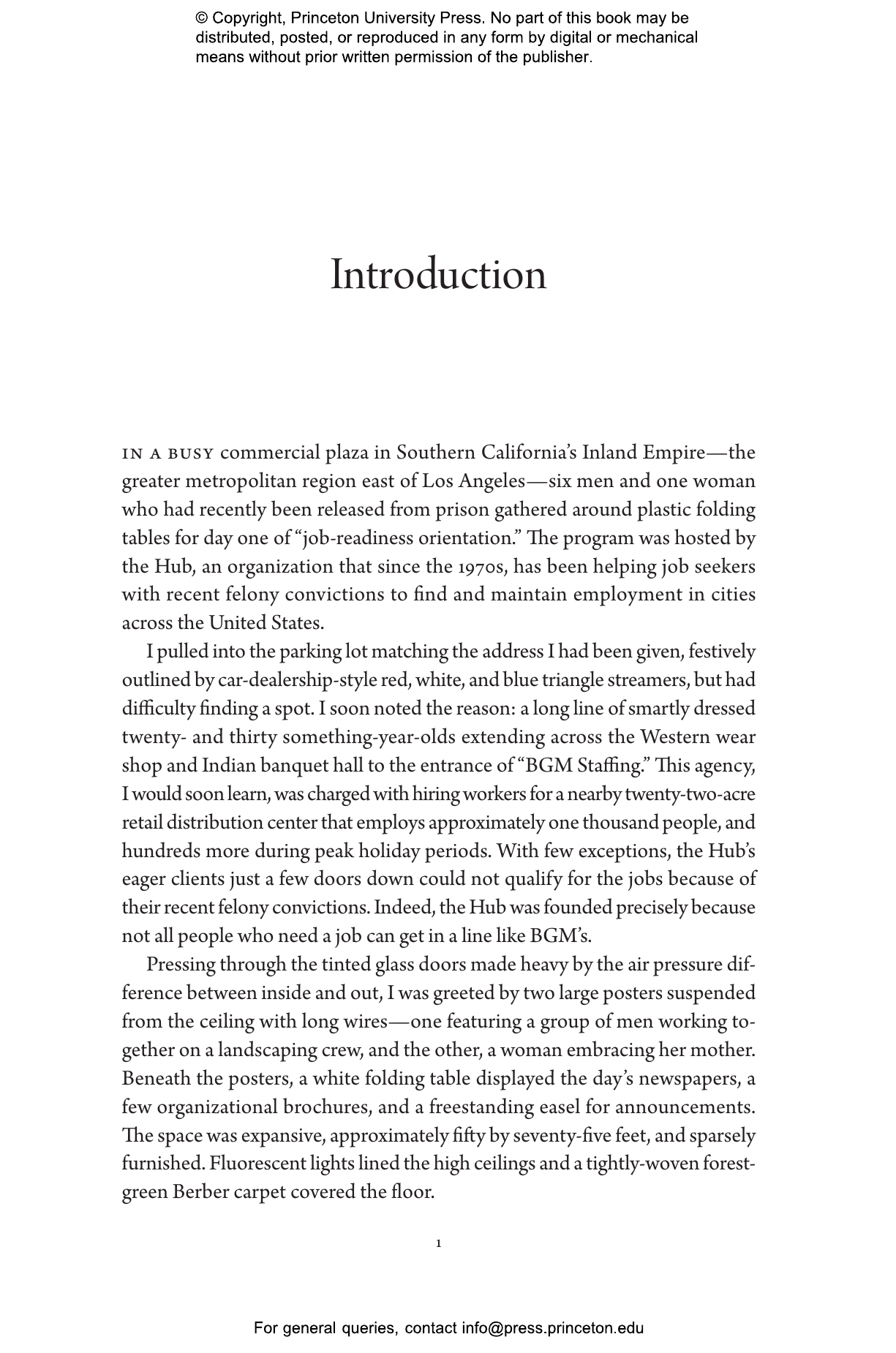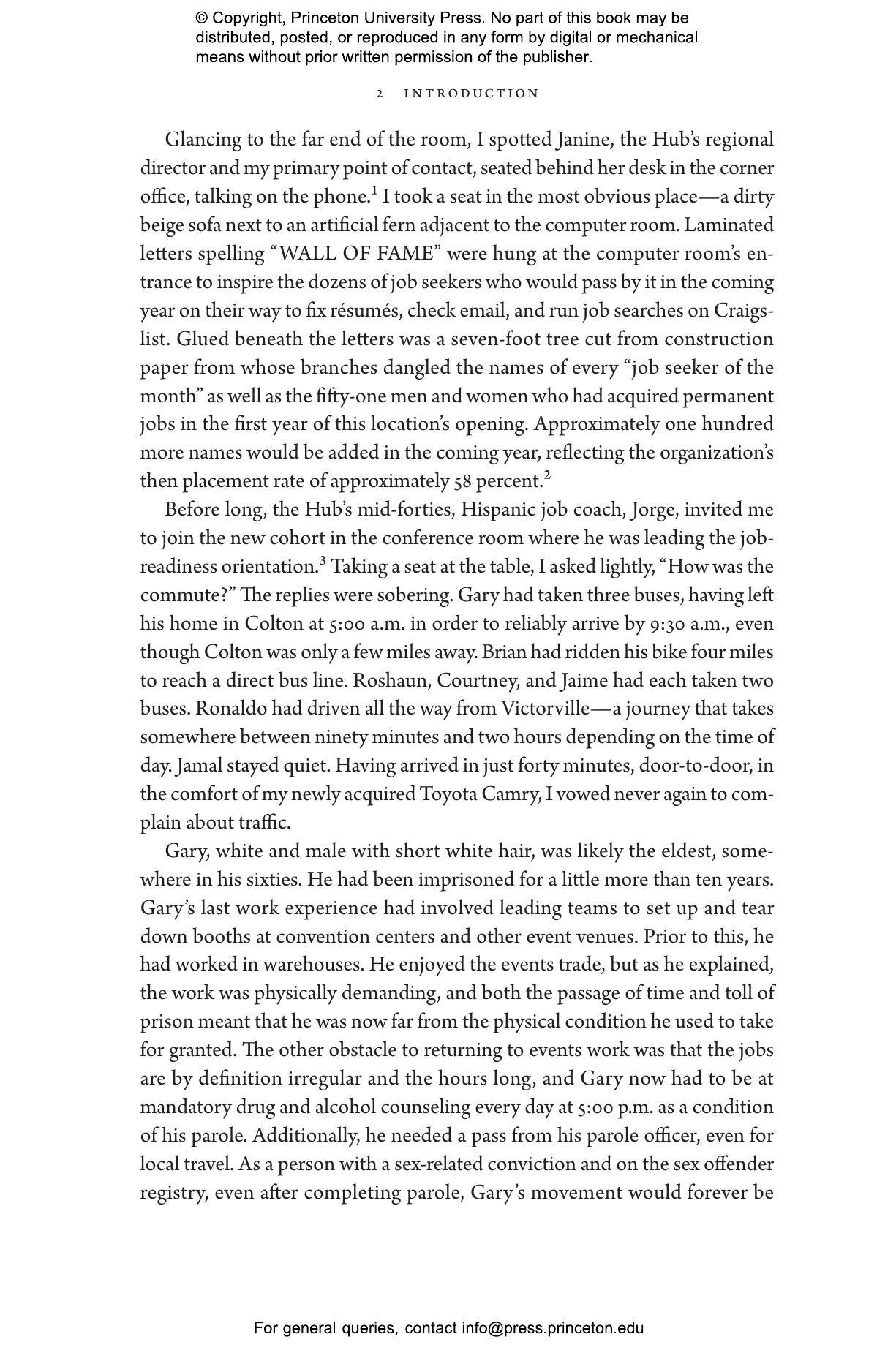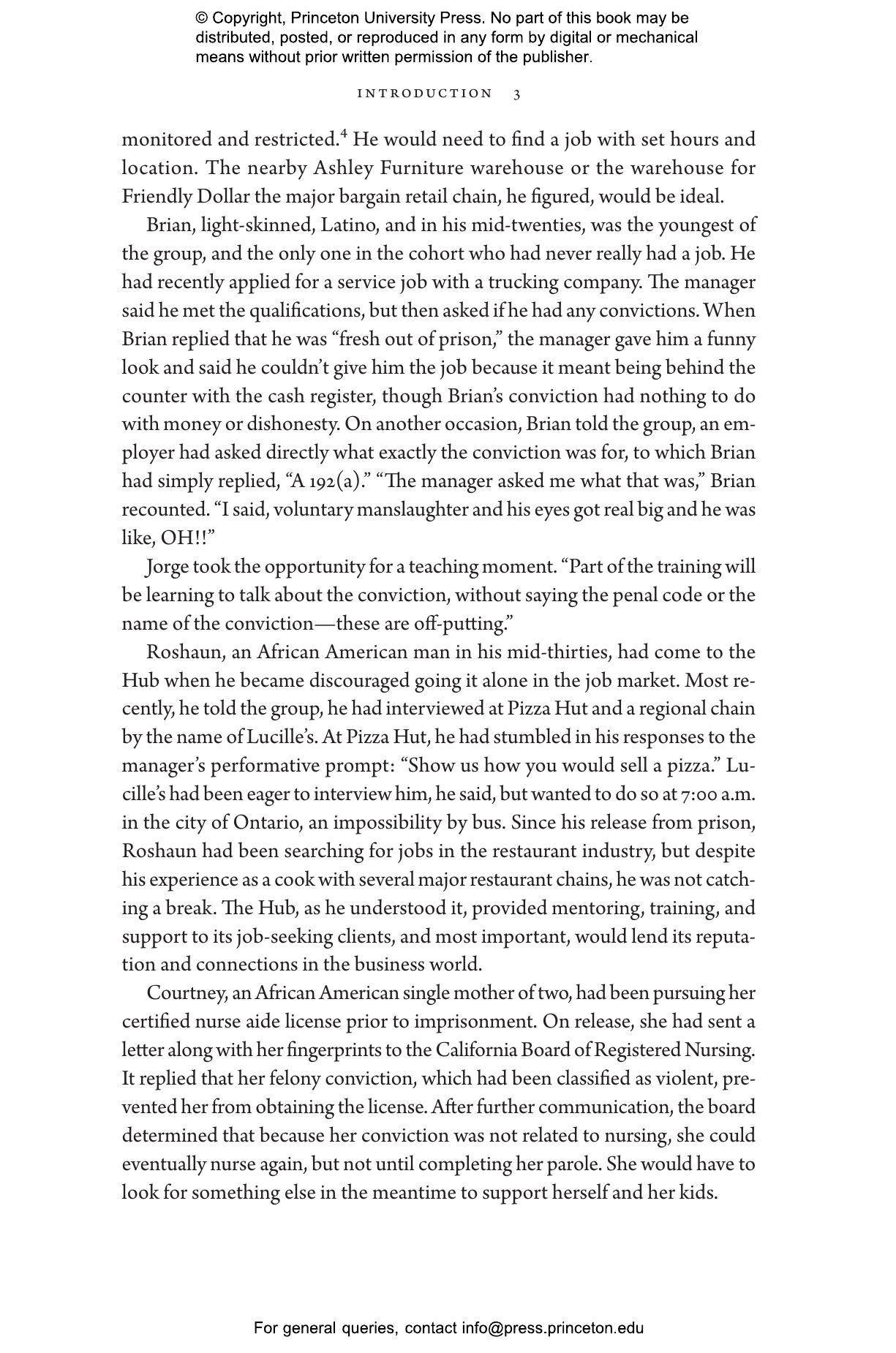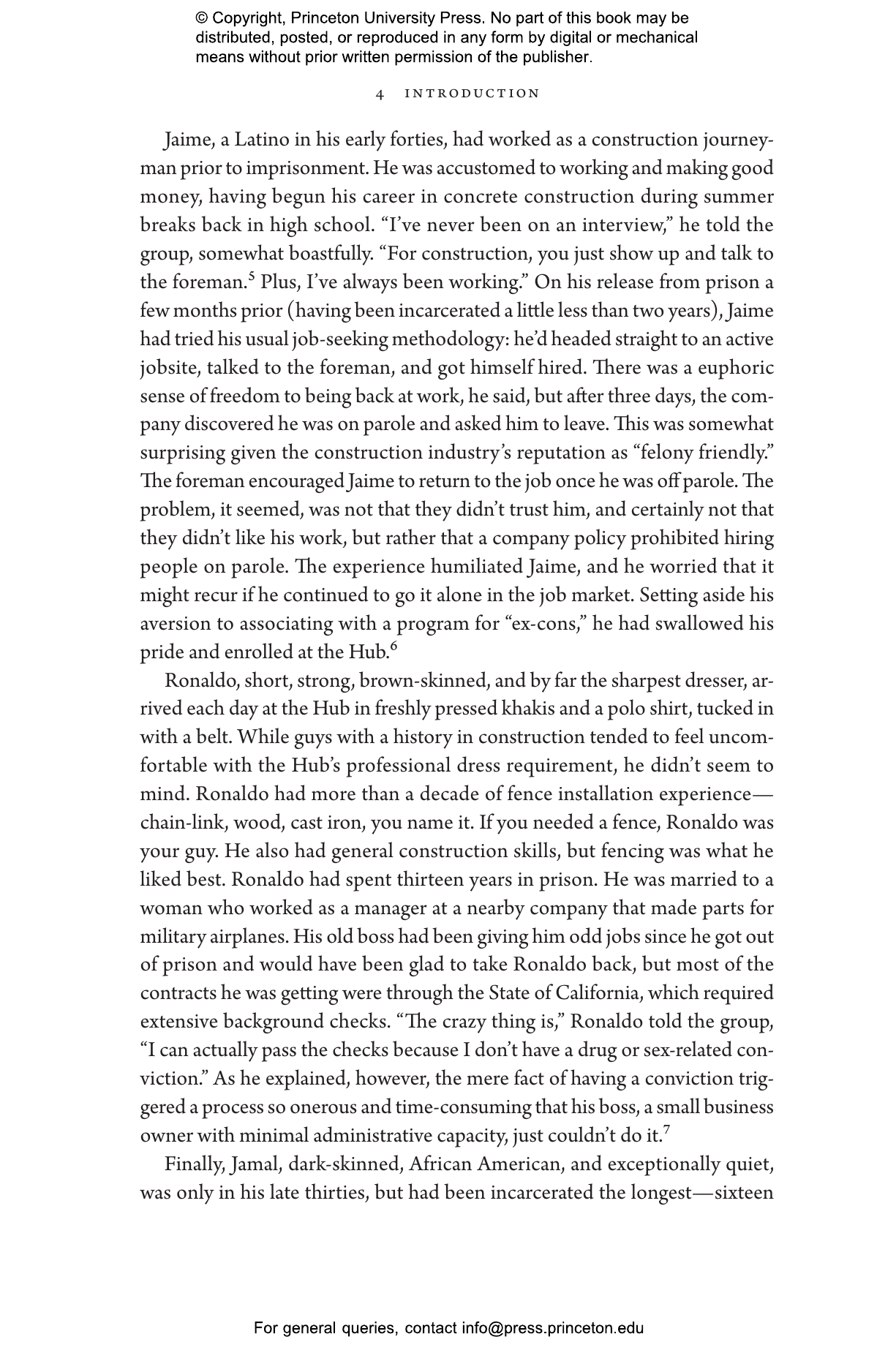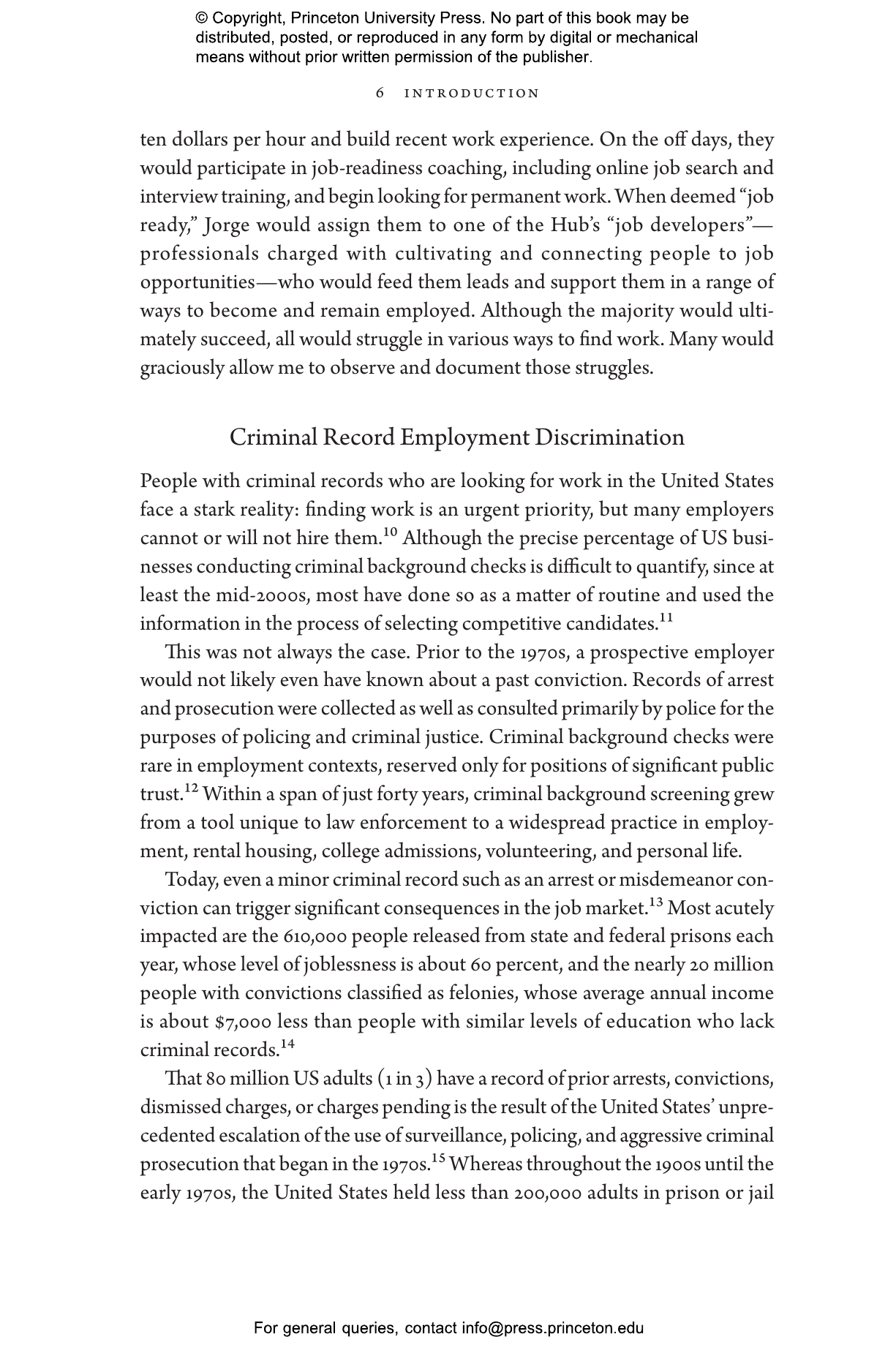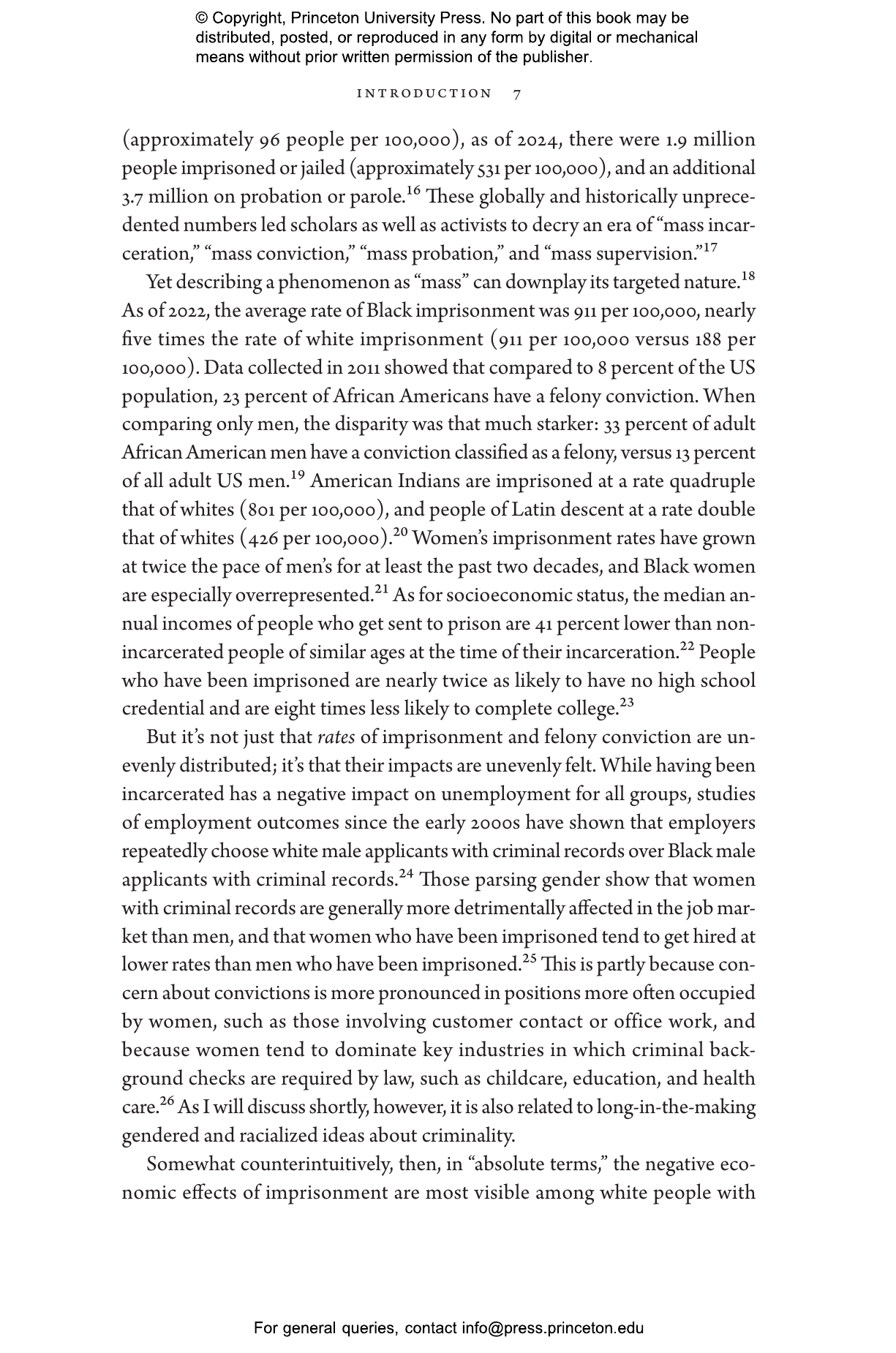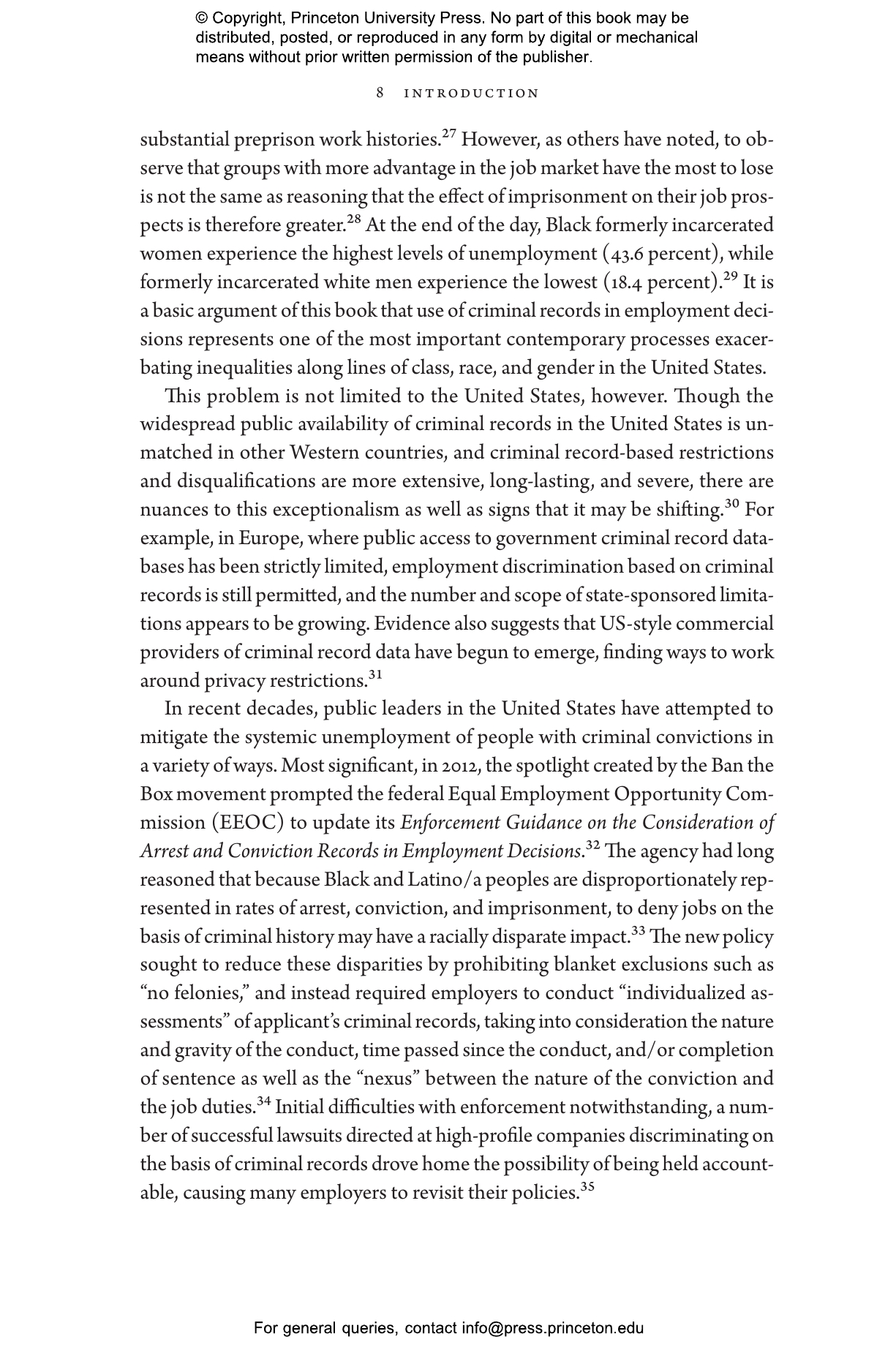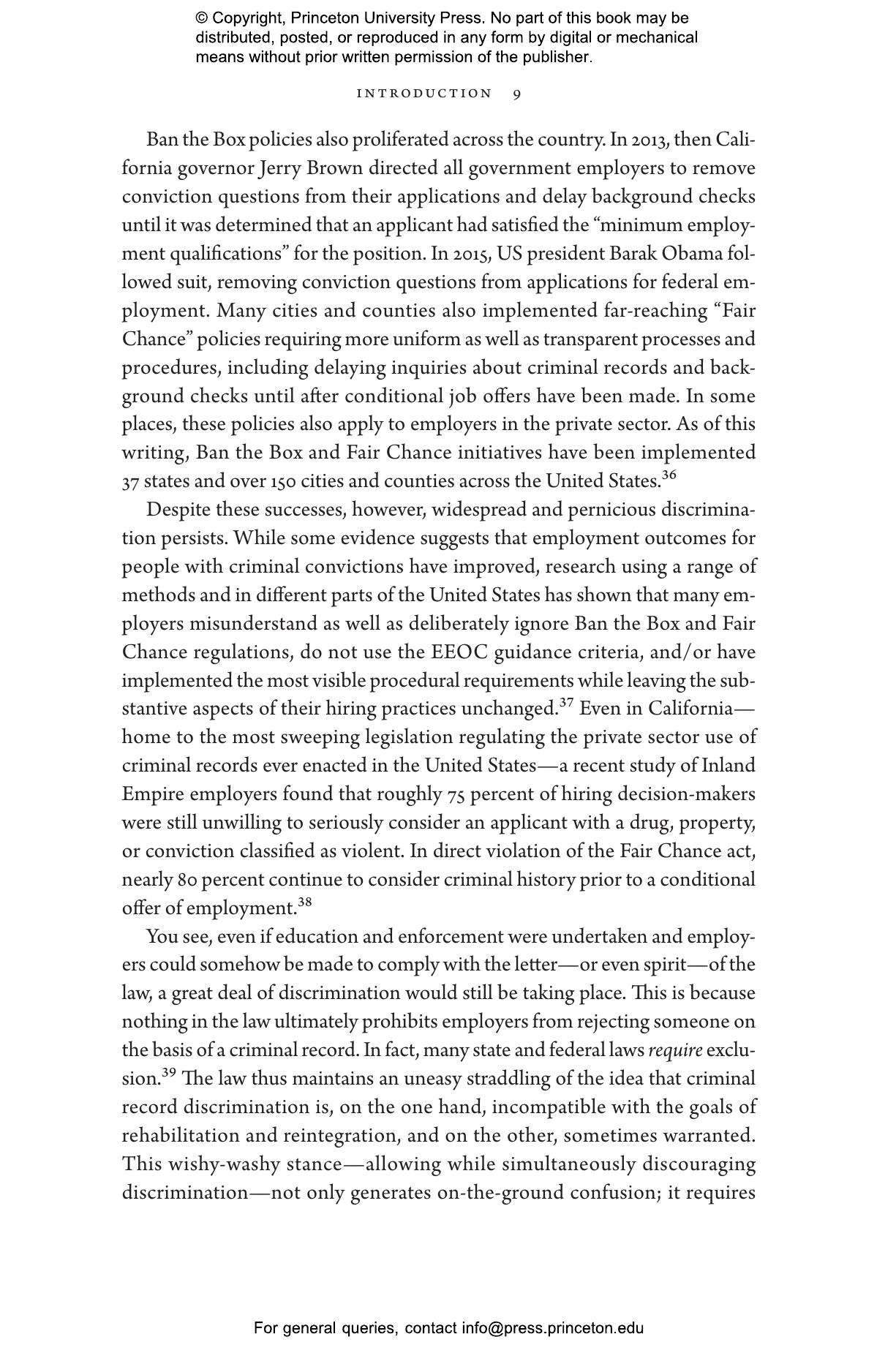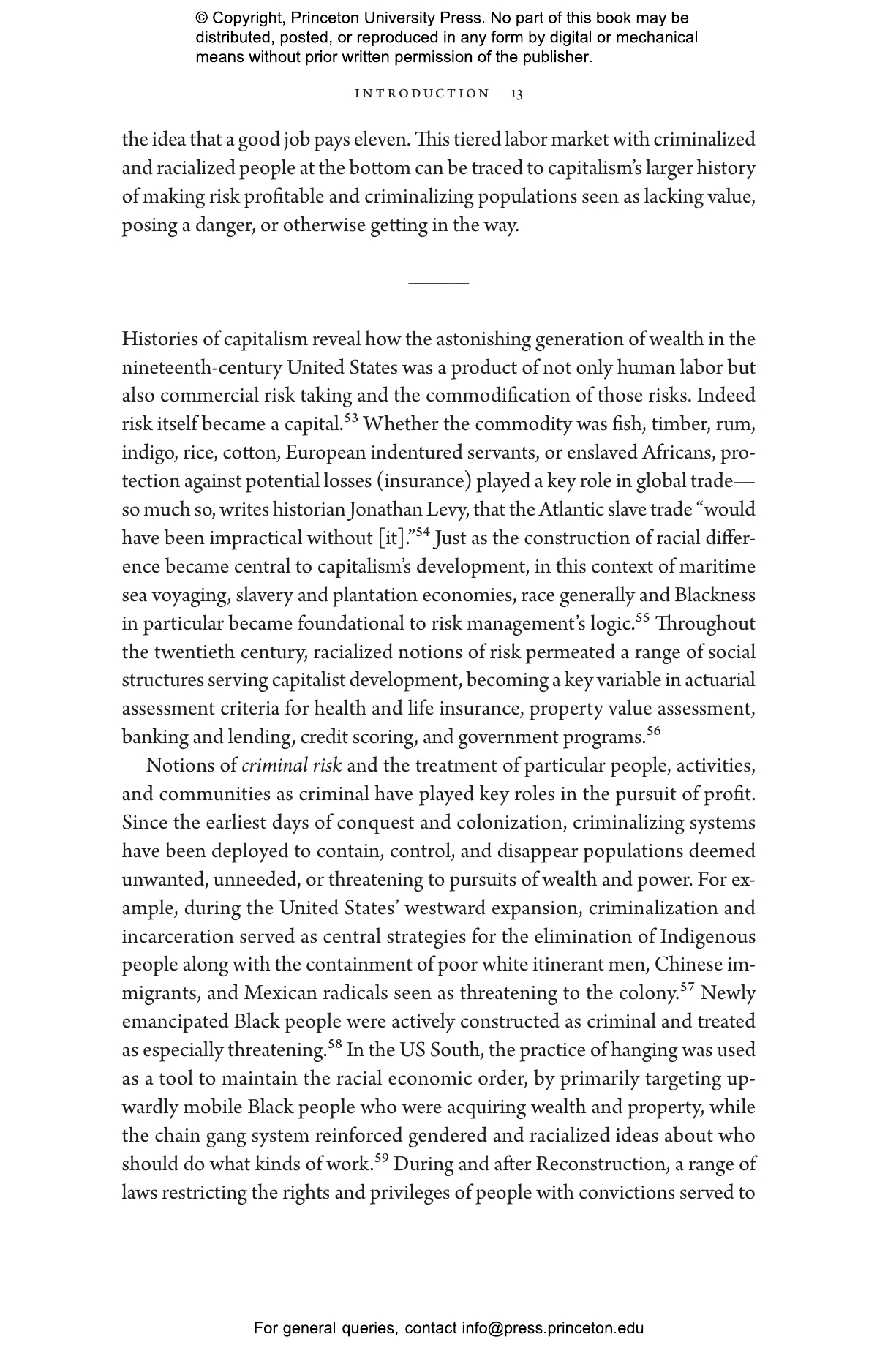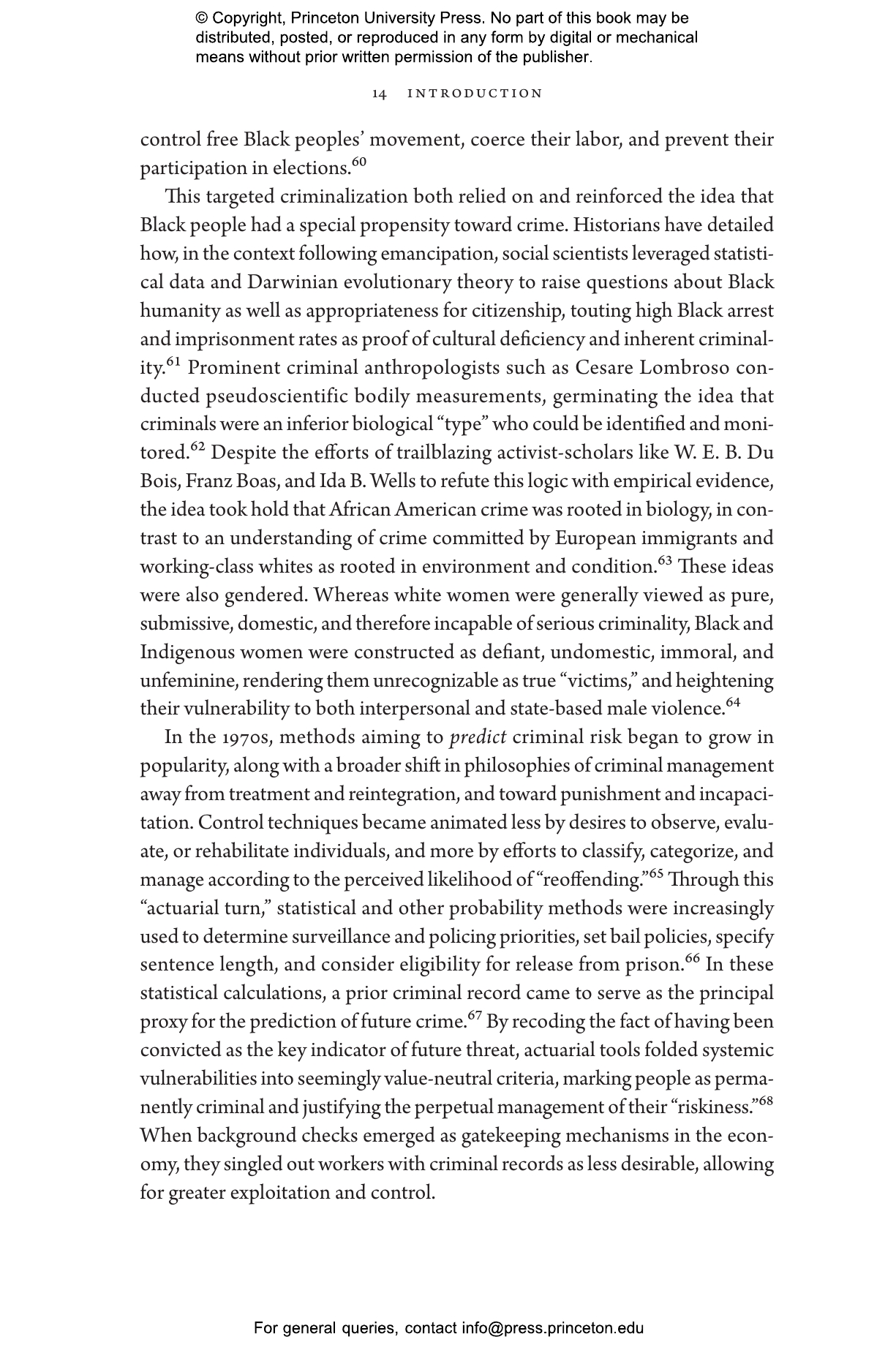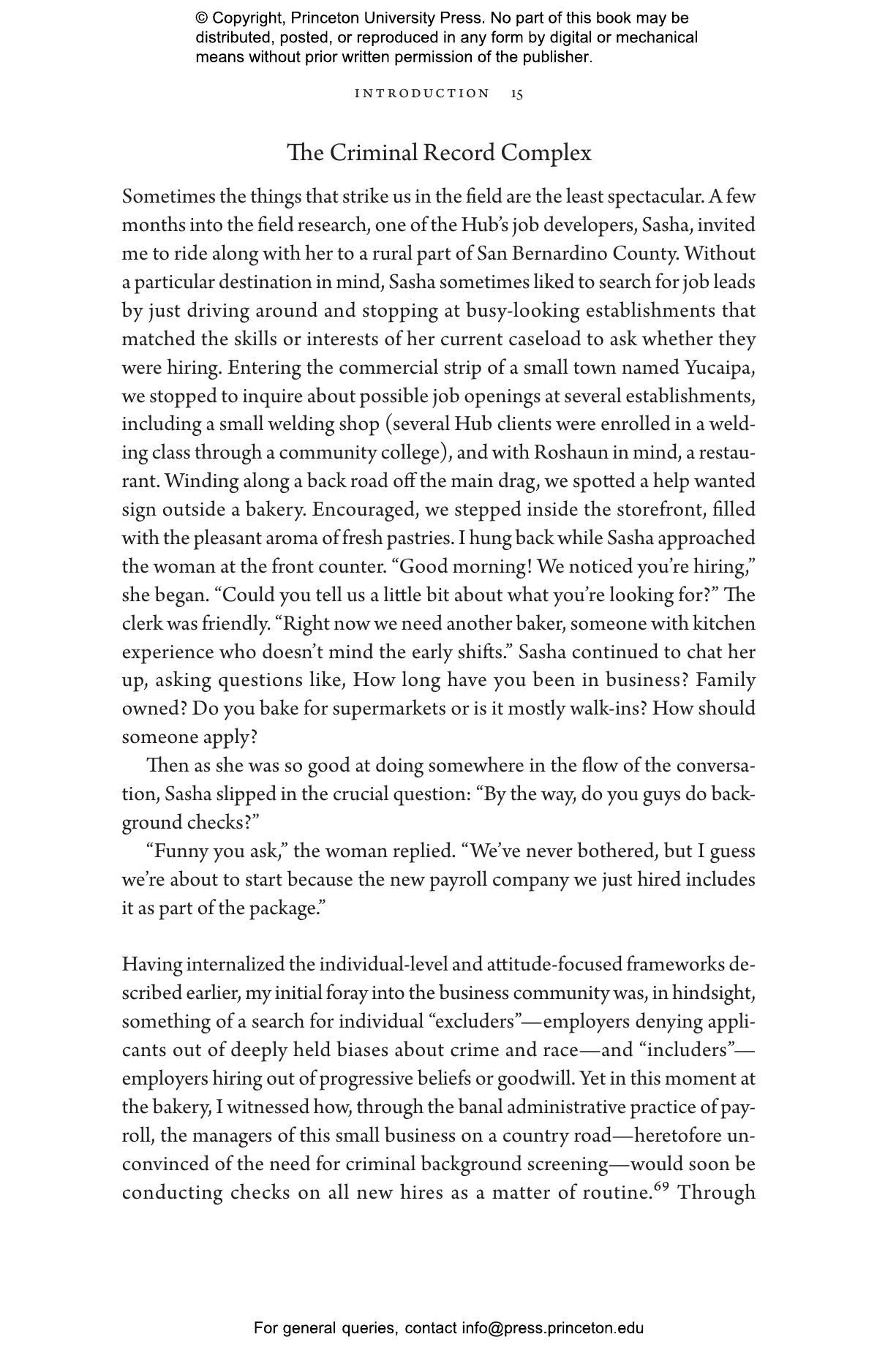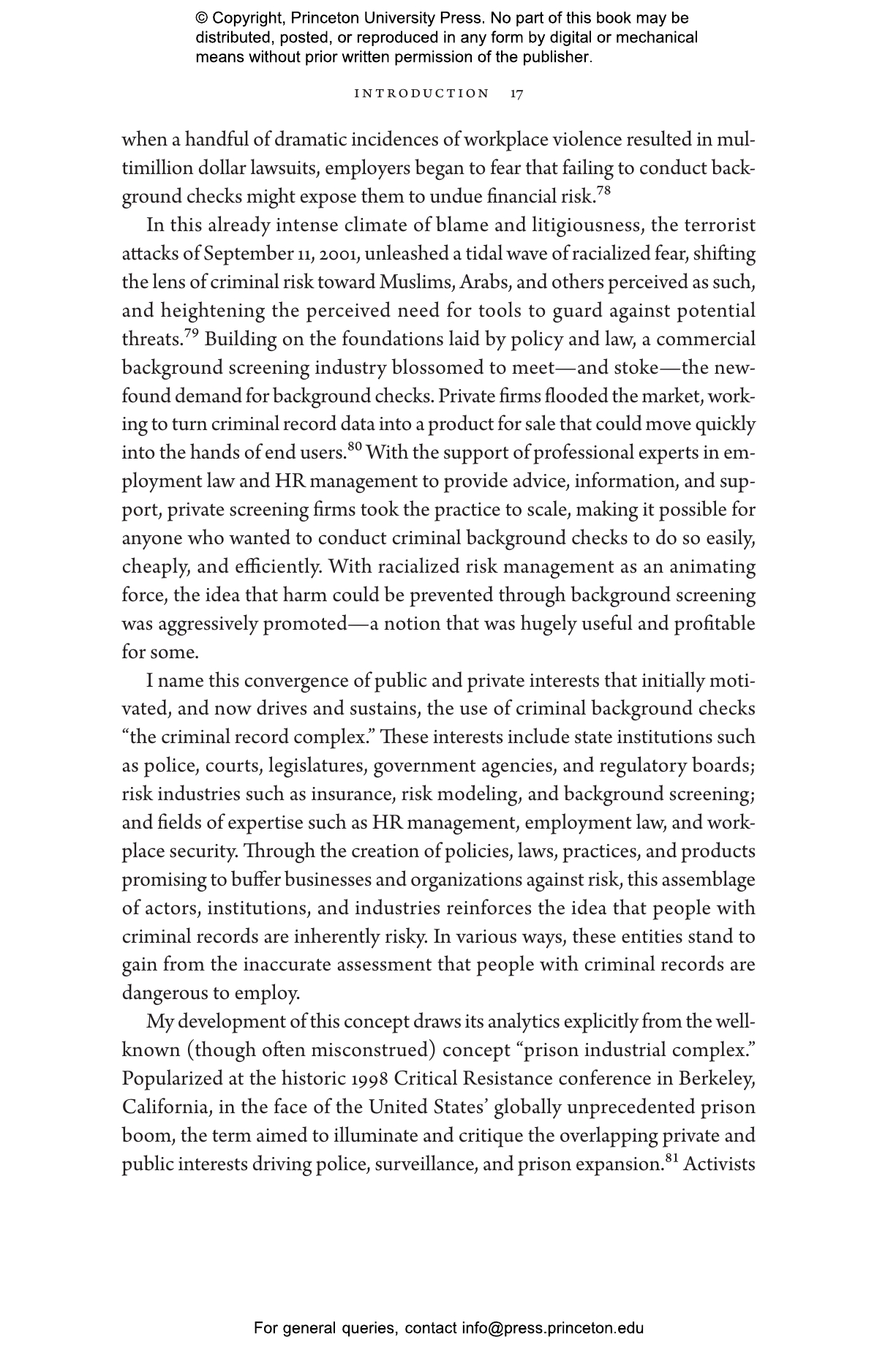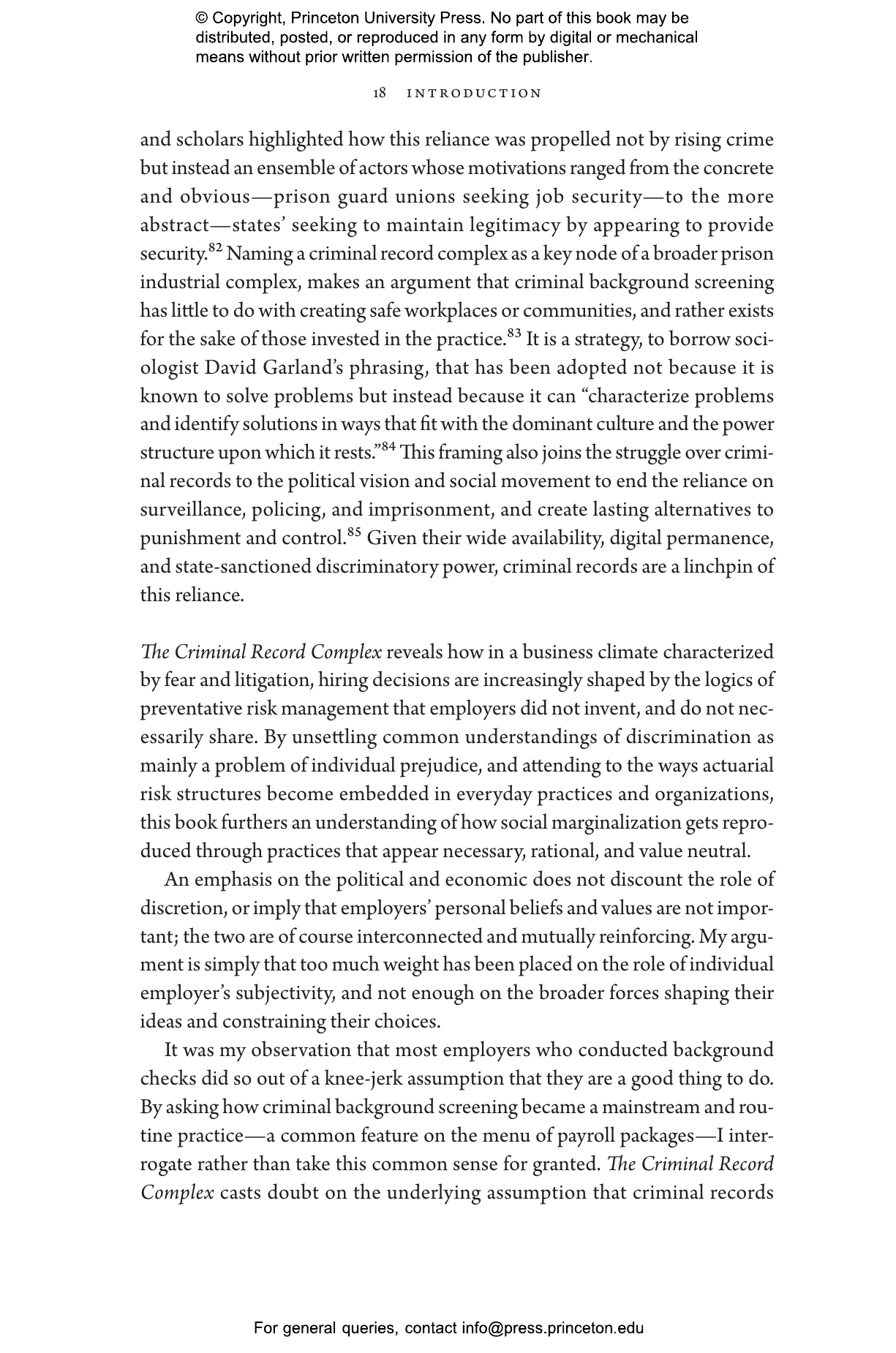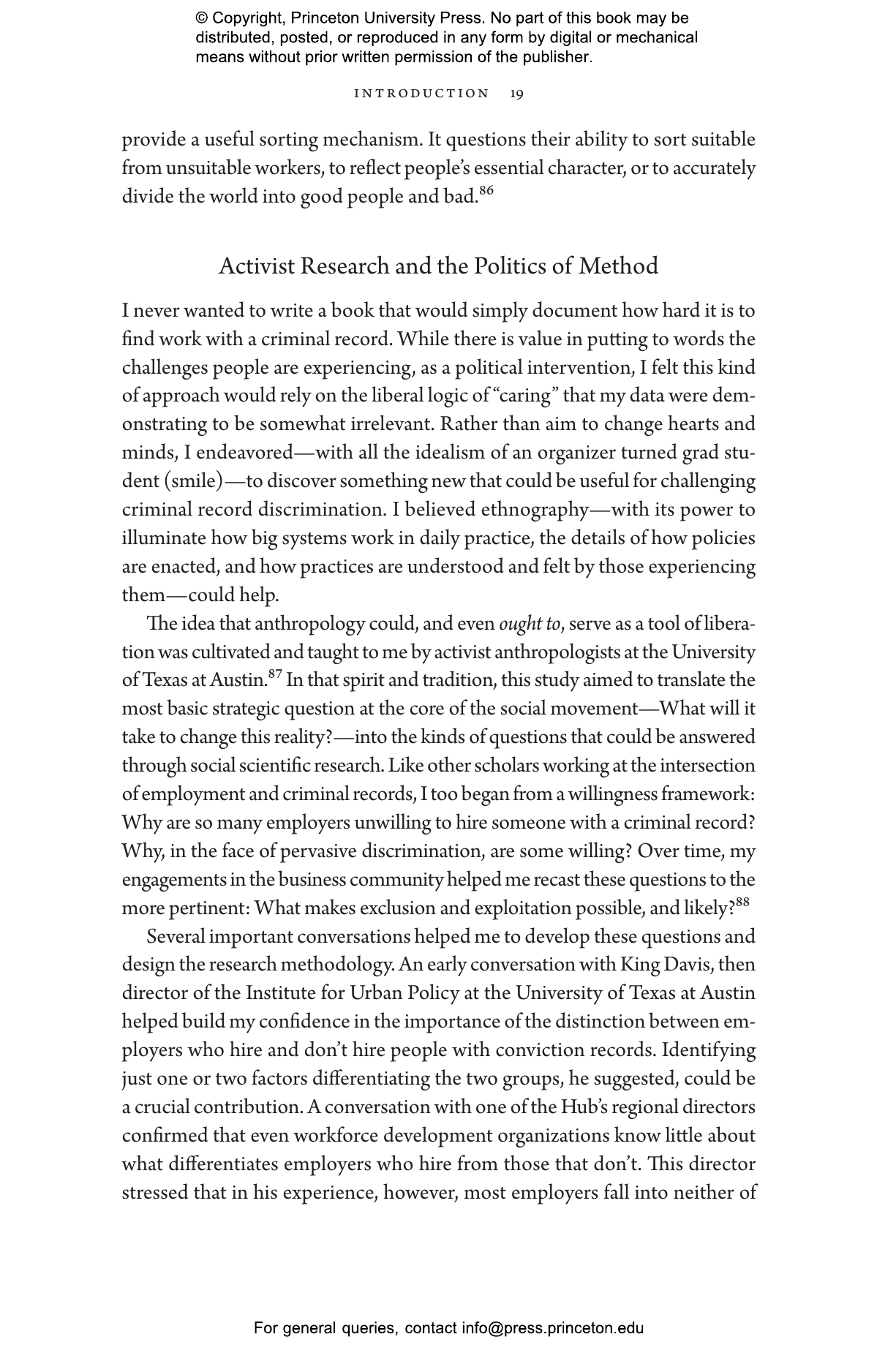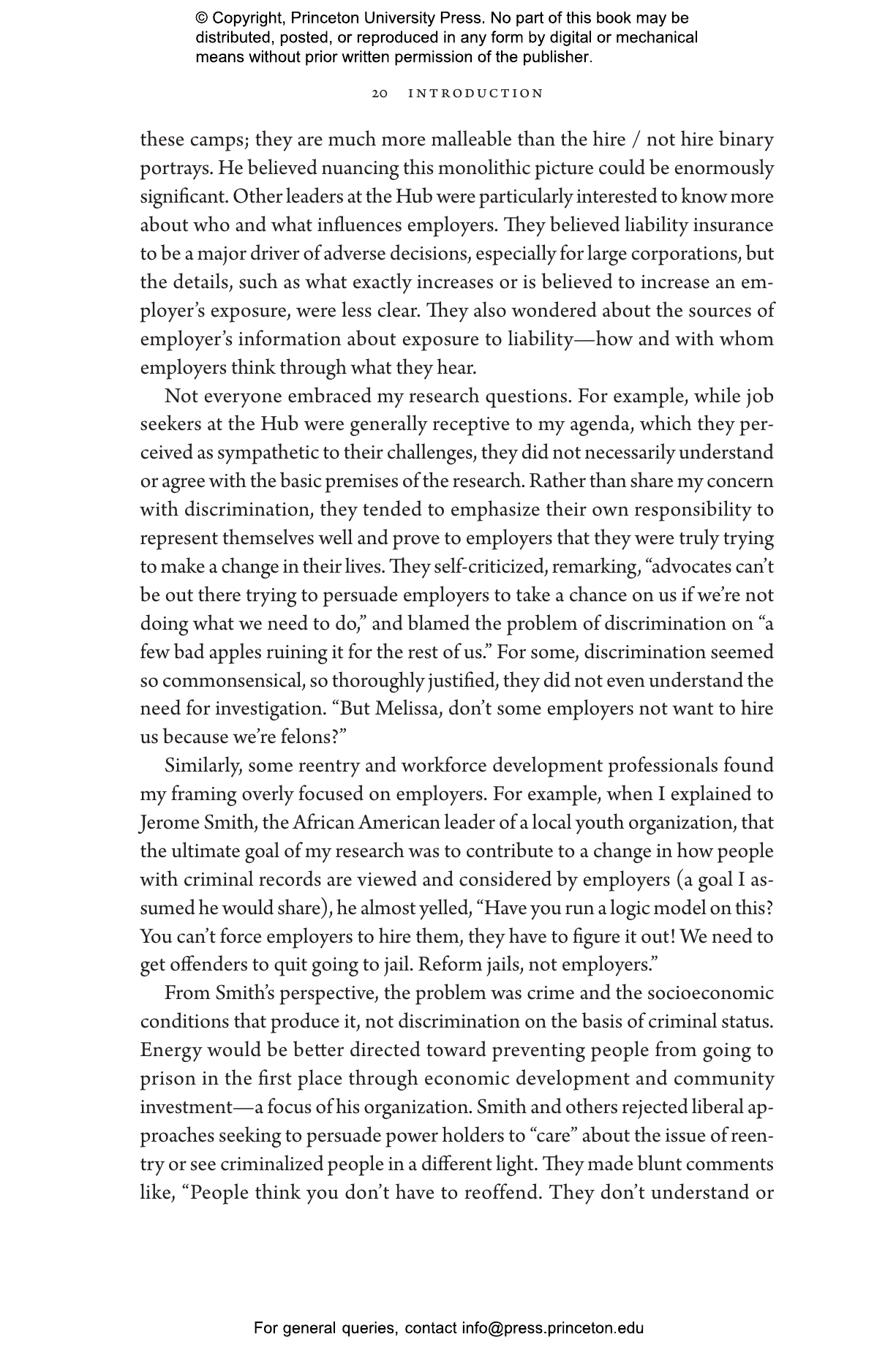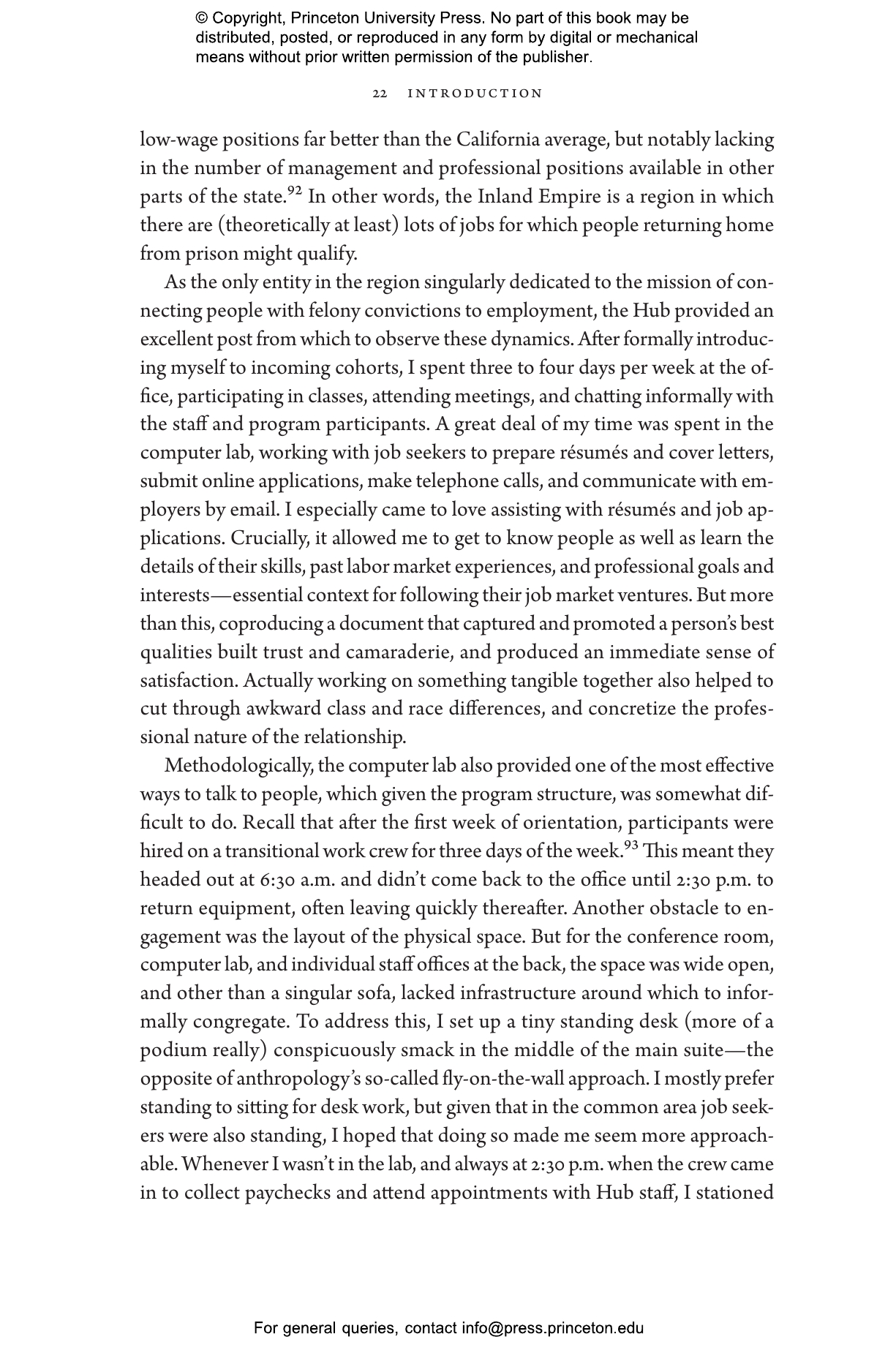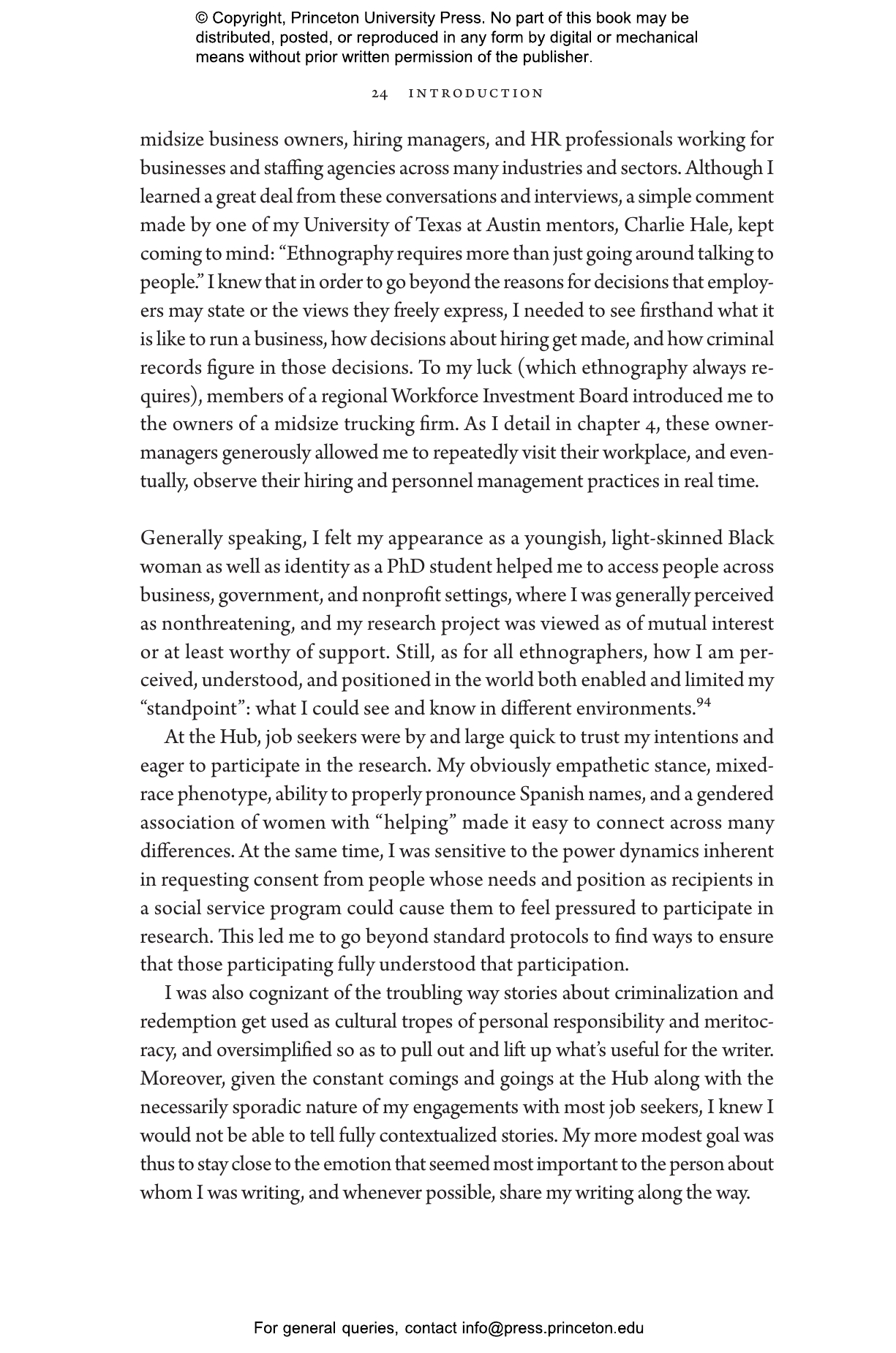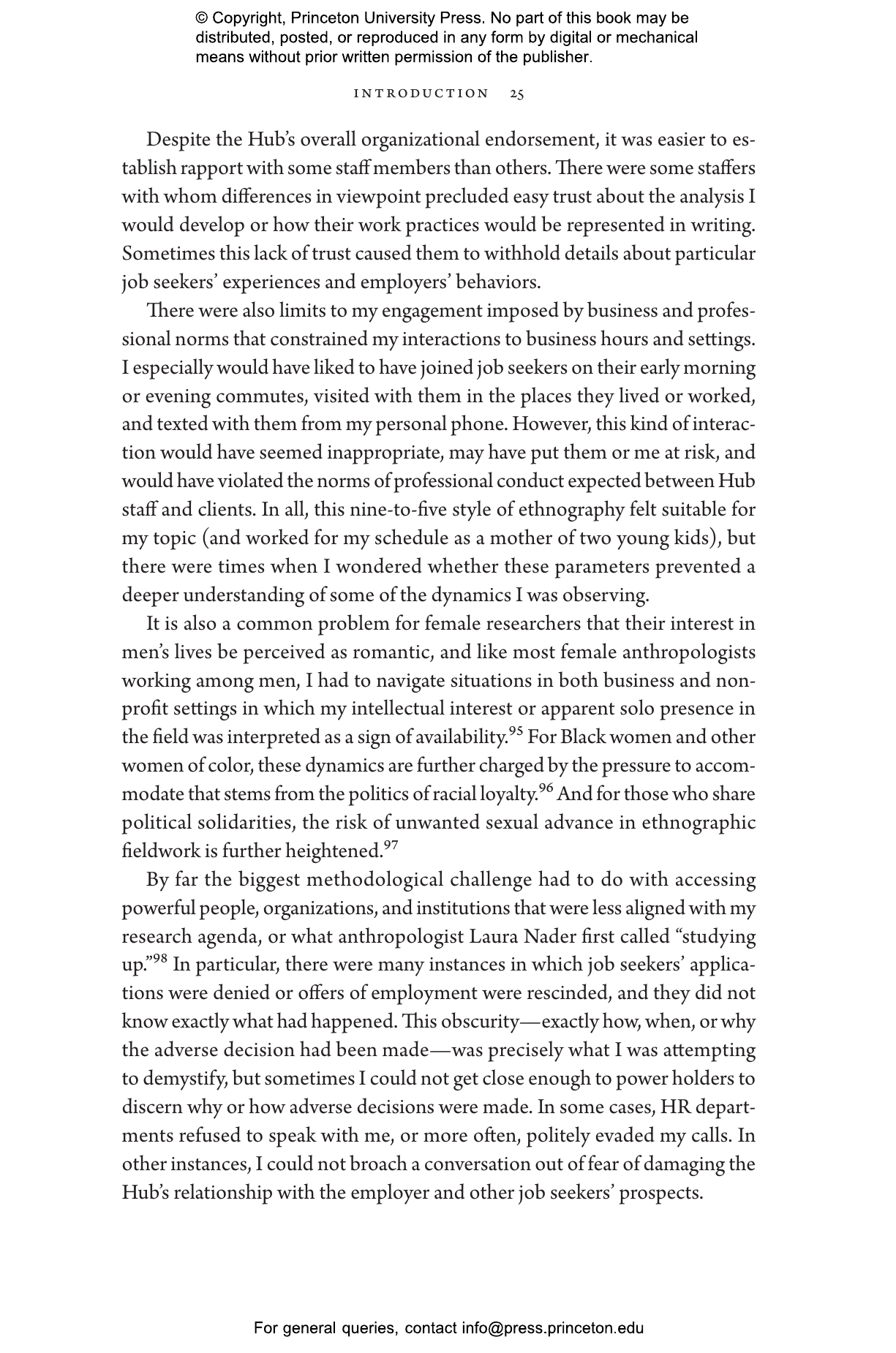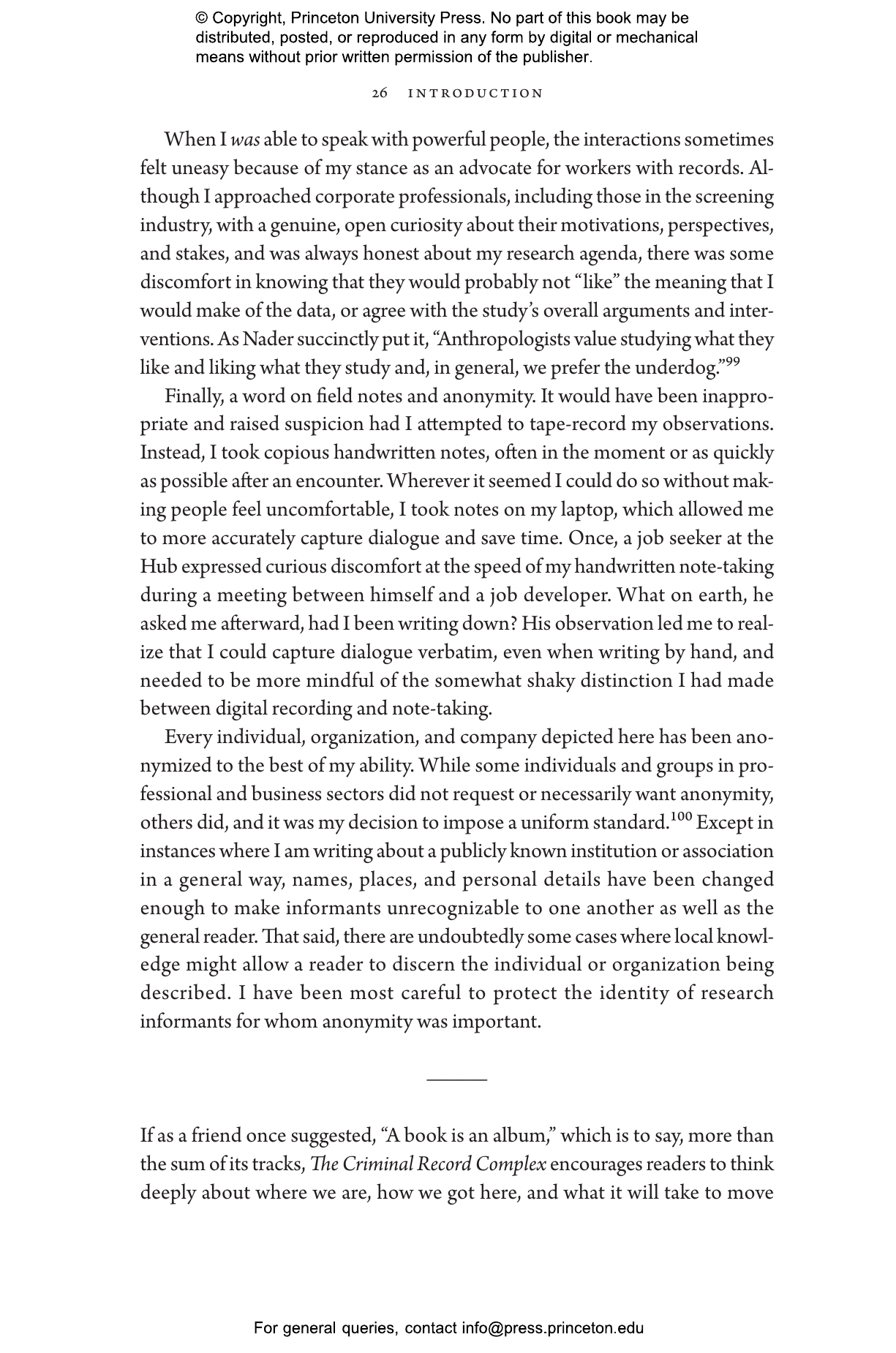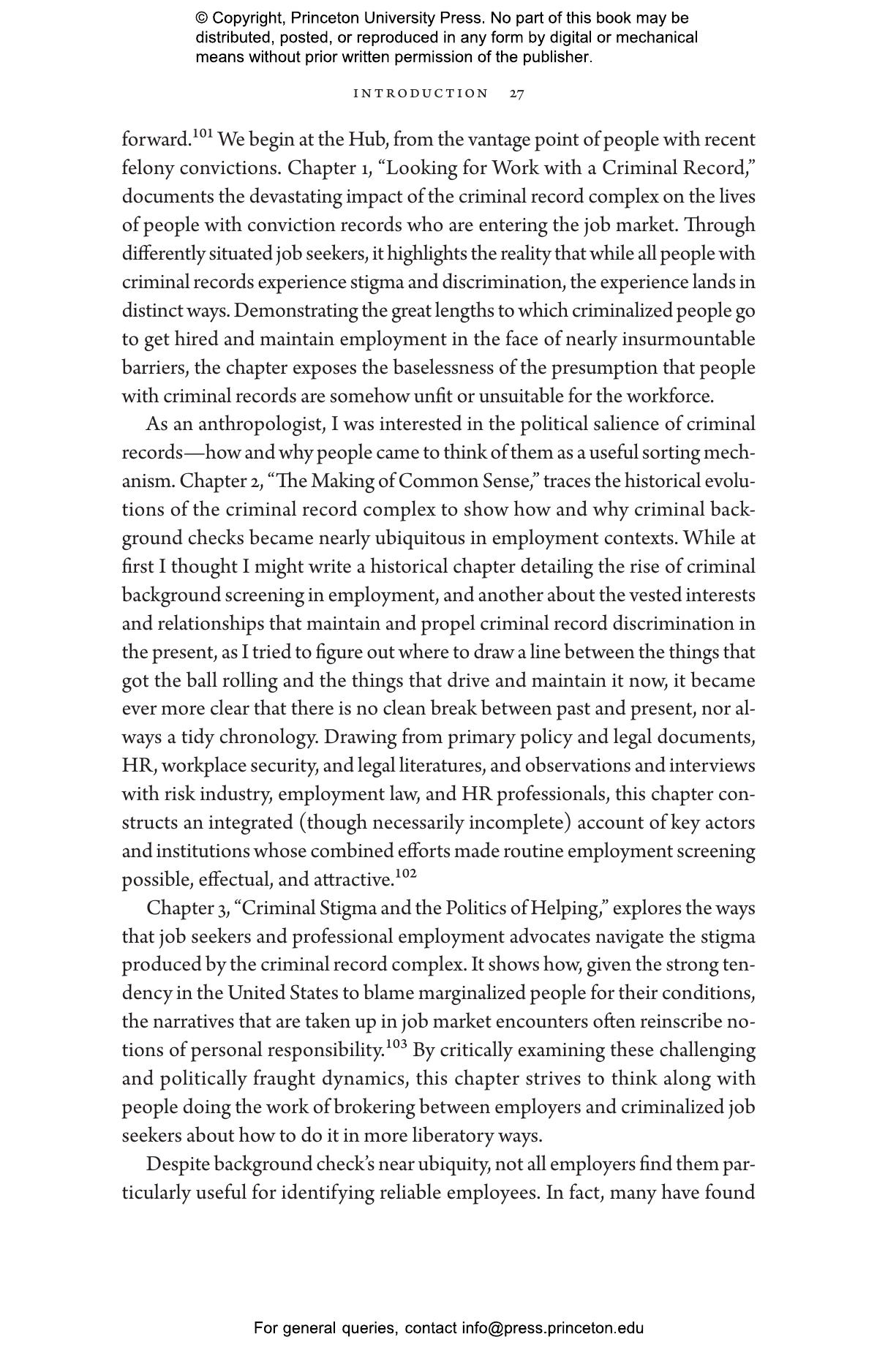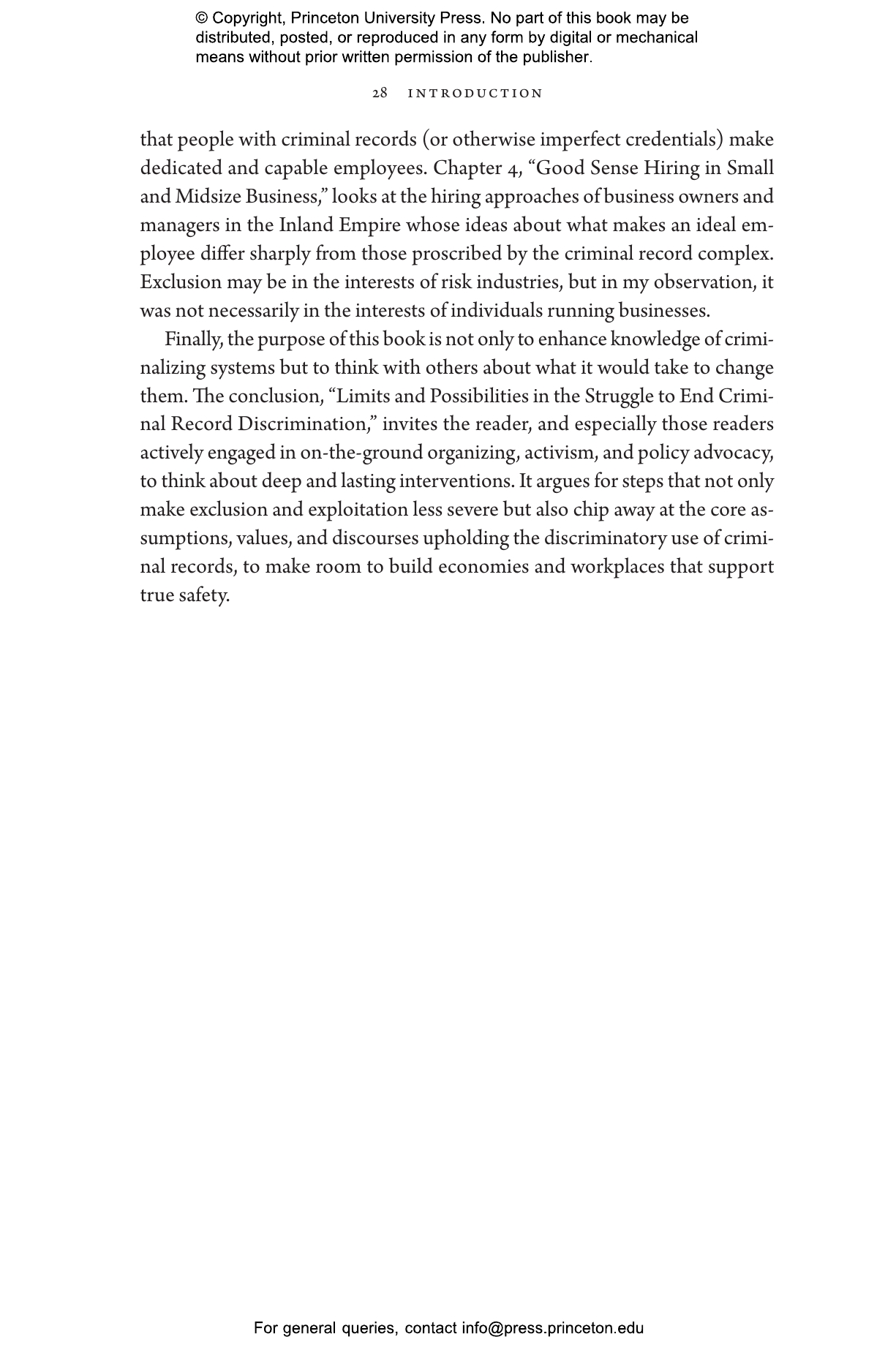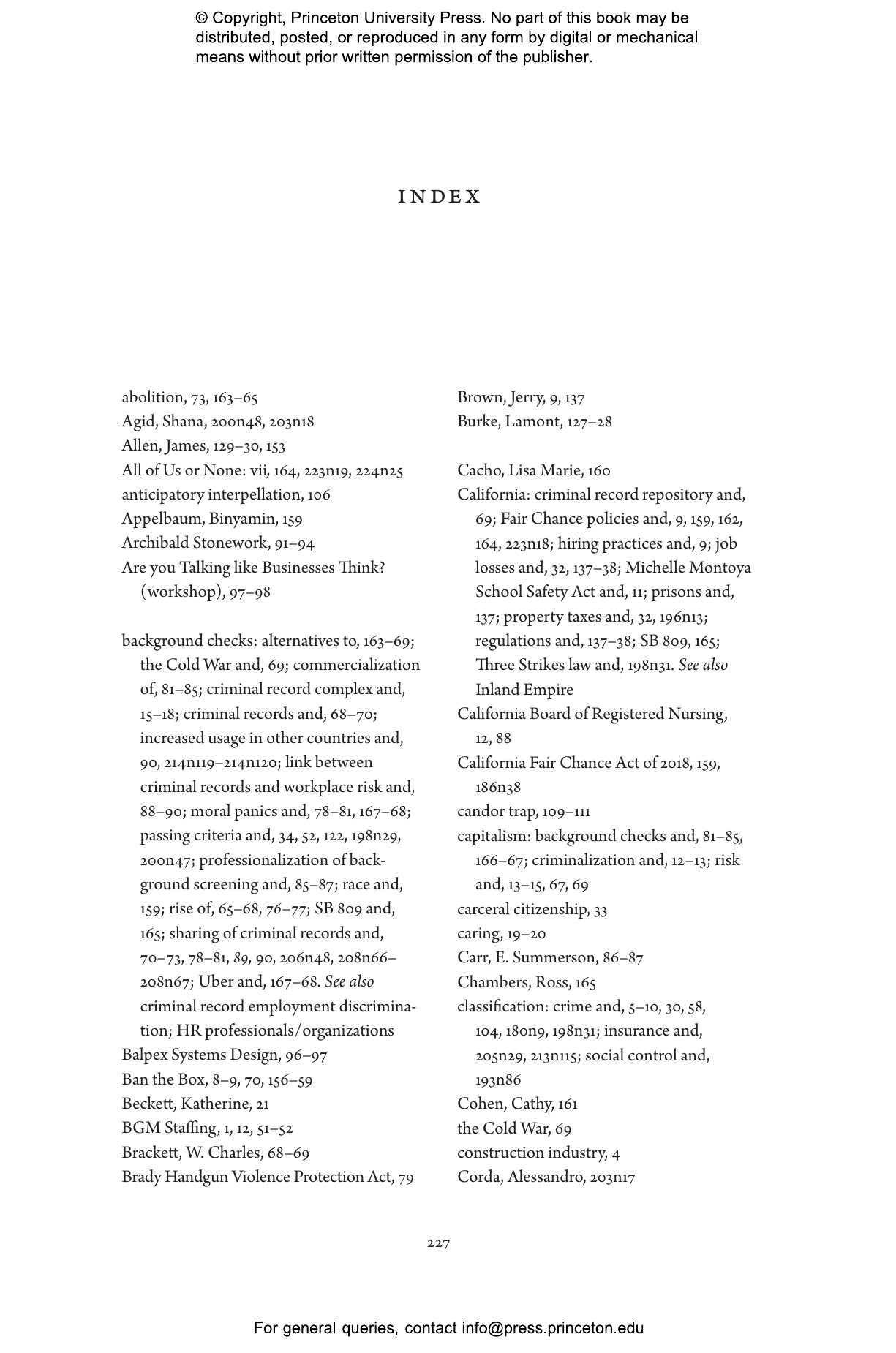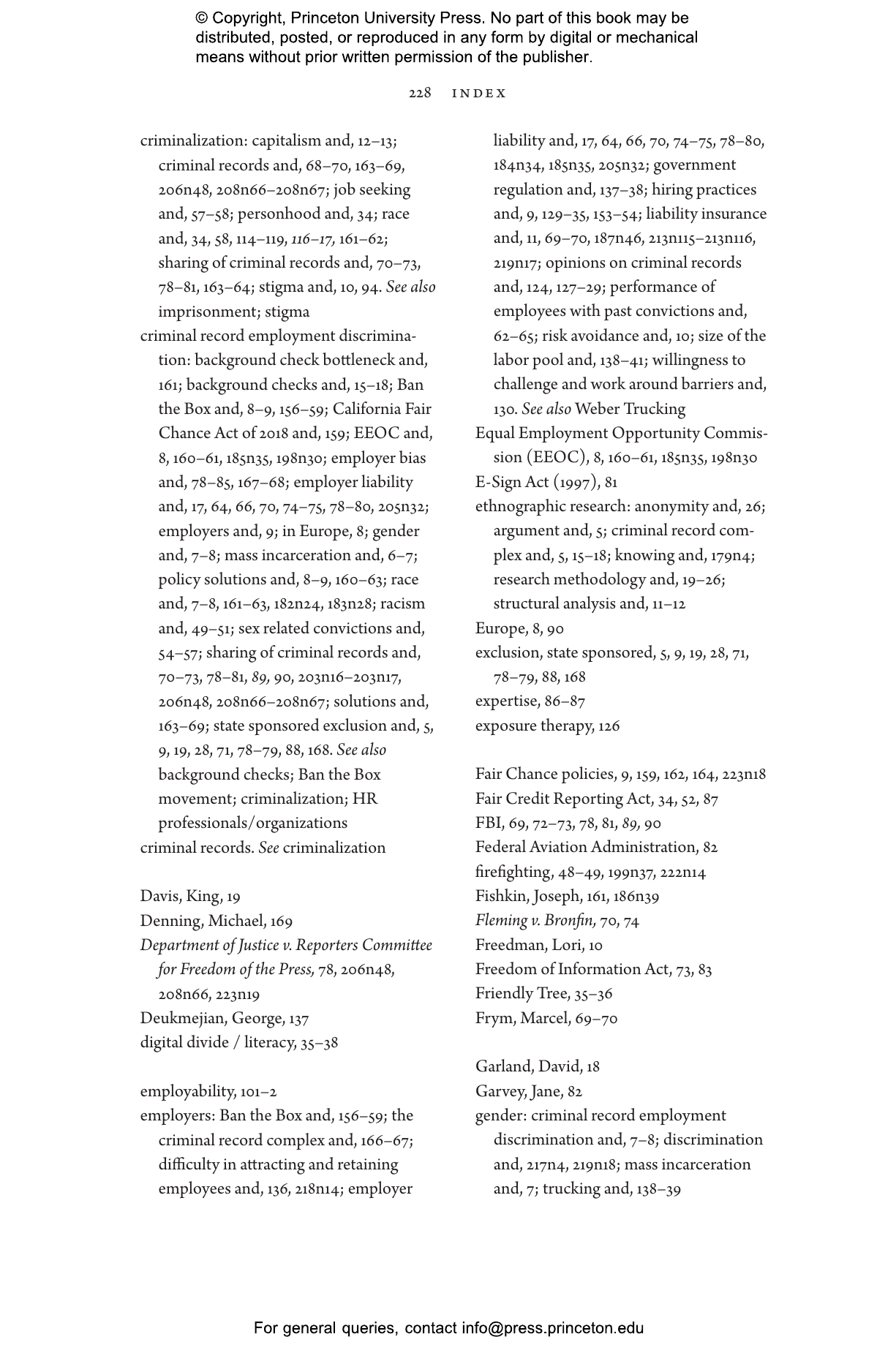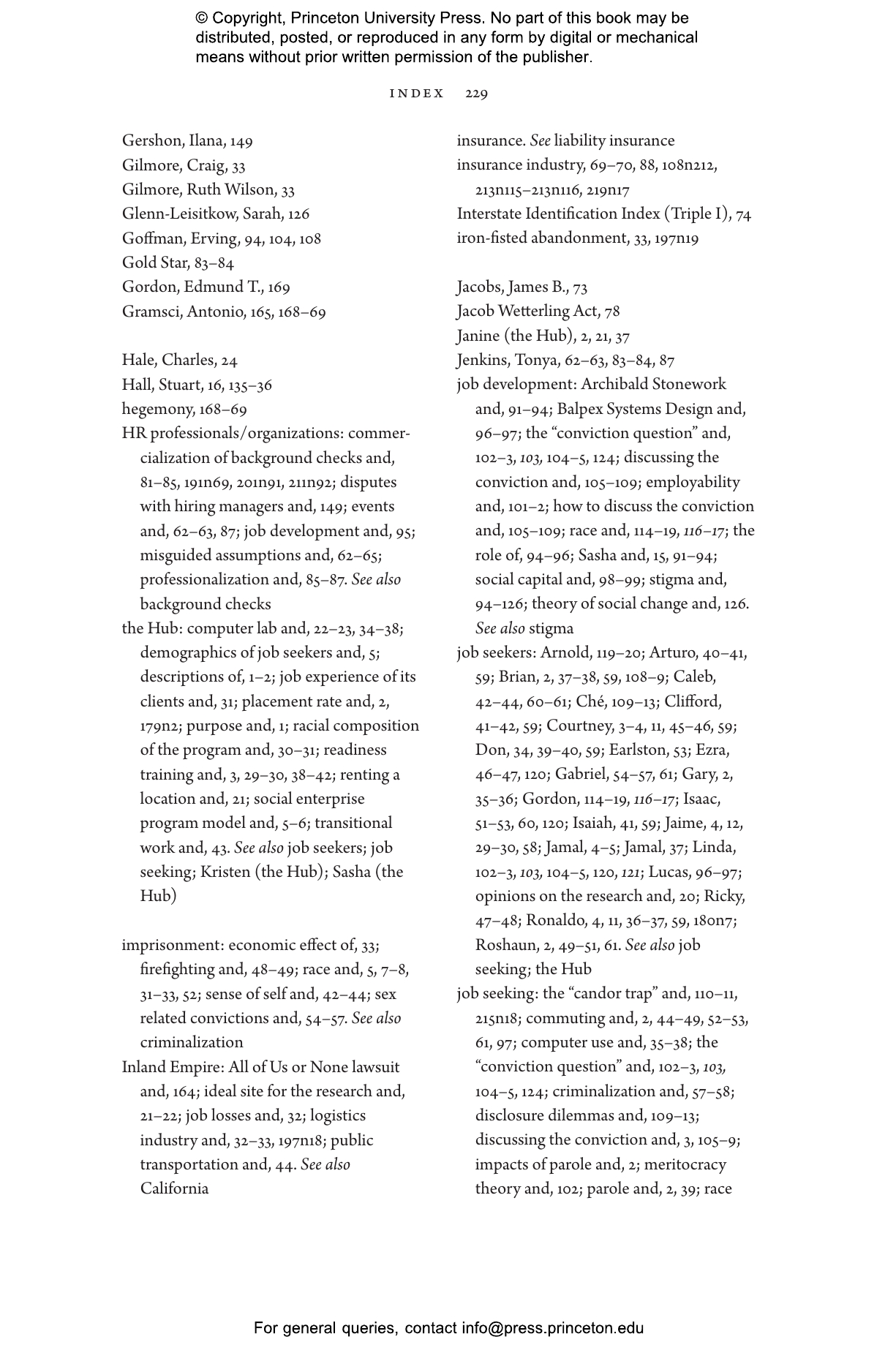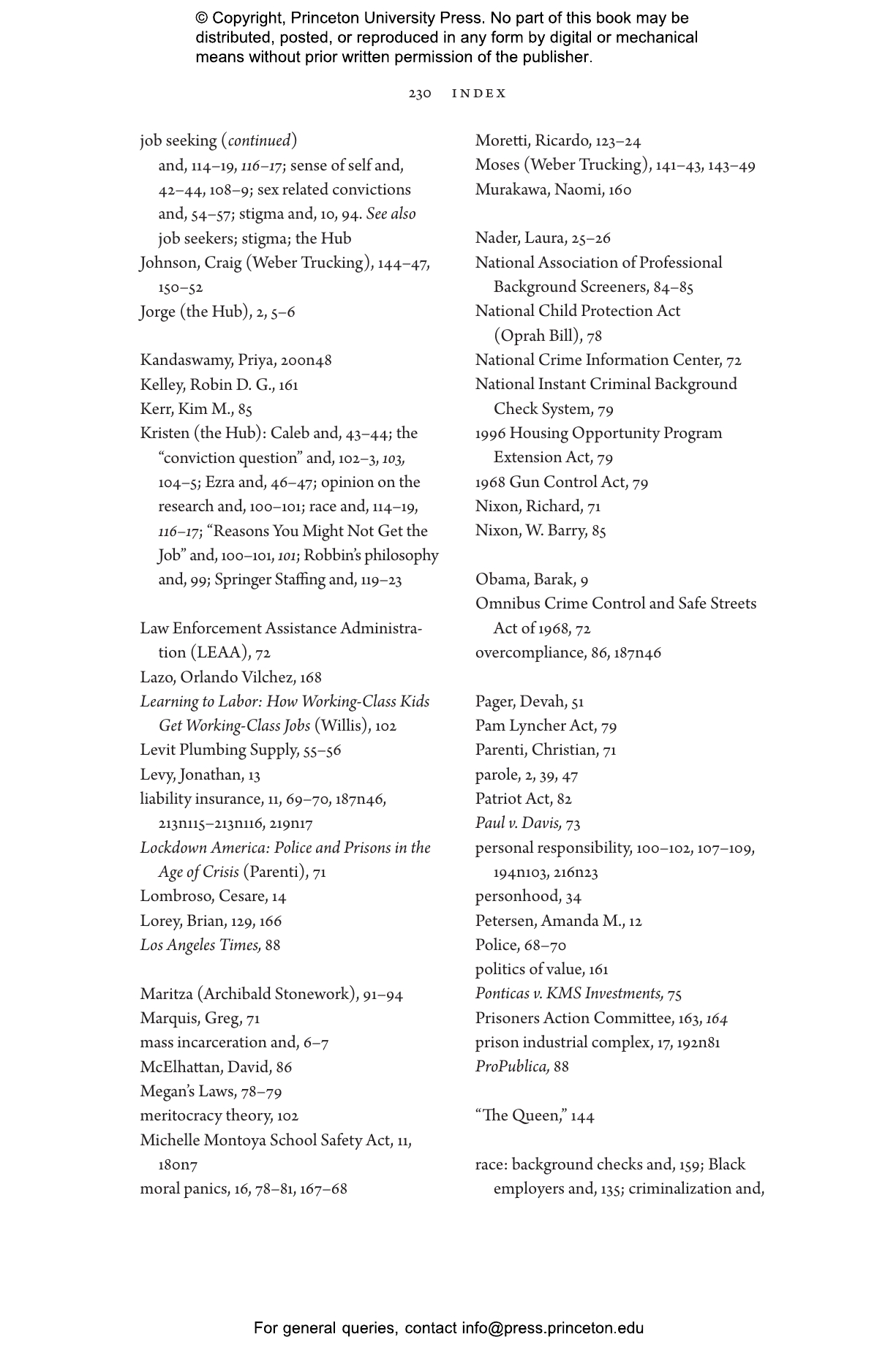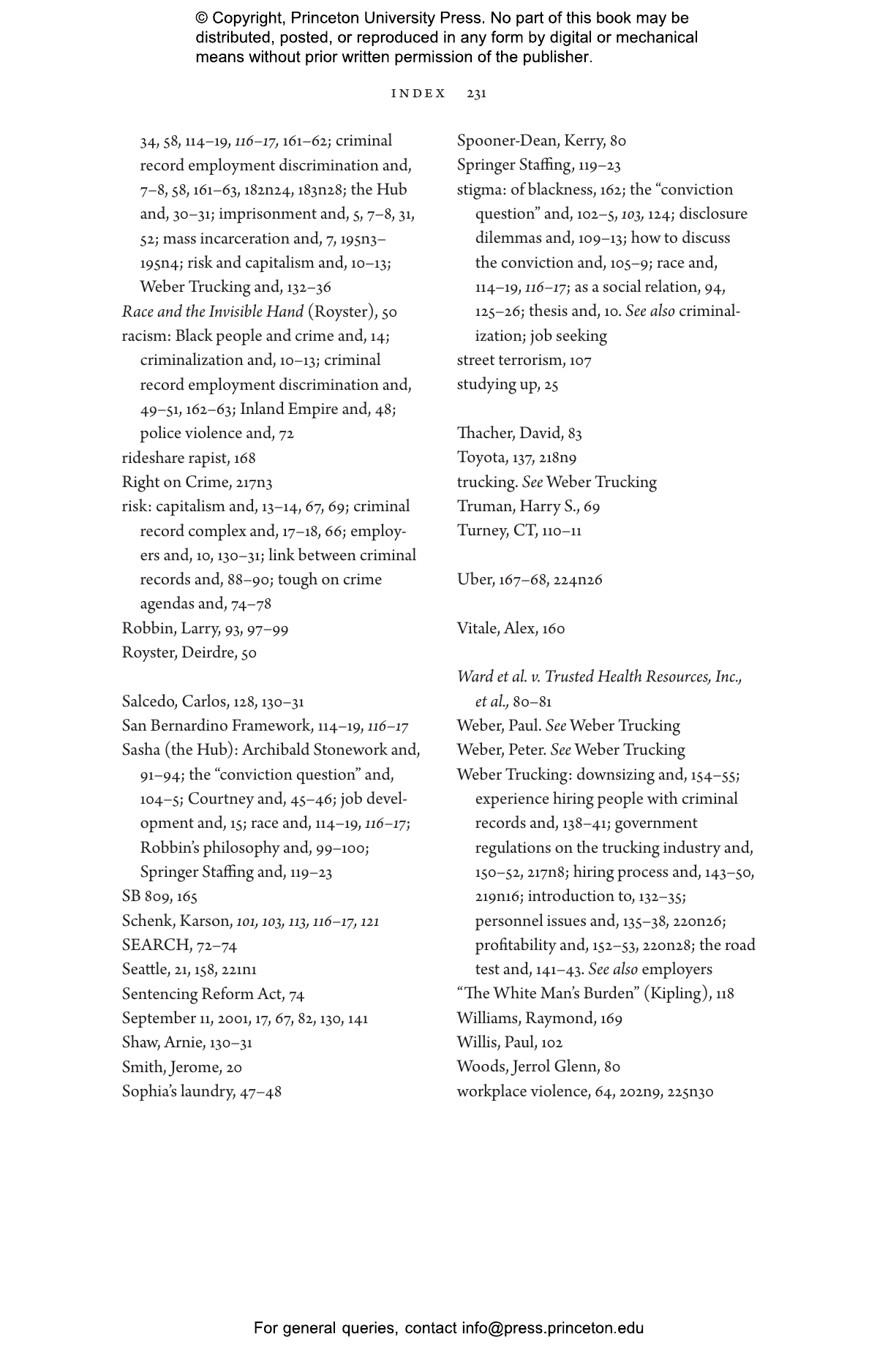Most employers in the United States routinely conduct criminal background checks on job applicants, weeding out those with criminal convictionsâand thus denying opportunities to those who need them most. In this powerful analysis, Melissa Burch sheds light on one of the most significant forces of social and economic marginalization of our timeâdiscrimination on the basis of criminal records. Chronicling the daily interactions of hiring managers, workforce development professionals, and job-seekers with felony convictions in Southern California, Burch shows that this discrimination is not simply a matter of employer bias. Hiring is shaped by a set of institutions, organizations, and industries that promote the erroneous idea that people with criminal records are dangerous to employ. This âcriminal record complex,â as Burch names it, encourages exclusion and undermines employersâ common-sense ways of assessing candidates. In vivid and intimate detail, Burch reveals both the futility and devastating human consequences of discriminatory policies.
Burch places todayâs routine practice of background screening within racialized notions of risk originating in early capitalist development, tracing how, over decades, criminal background checks became a convenient catch-all, leveraged by entities with a direct interest in growing the practice. Despite this reach, however, Burch discovers that small business owners tend to put less value on background checks, trusting their own judgment. Approaching the issue from both personal and policy perspectives, The Criminal Record Complex upends what we thought we knew about the causes of criminal record discrimination. It suggests that our best hope for creating safe workplaces lies not in the false promise of background screening, but in building the kinds of economies and communities that support true safety.
Melissa Burch is Assistant Professor of Anthropology at the University of Michigan and Director of the Afterlives of Conviction Project.
34152
“This book is a stellar exploration of the racialized geographies of criminalization, employment, and social reproduction that take shape in the shadow of the prison. Richly driven by the insights and experiences of her interlocutors as they interpret, navigate, reproduce, and resist the criminal record complex, Burch’s account delivers crisp and methodical analyses that reveal the multi-scalar social forces that create and sustain it.”—Judah Schept, author of Coal, Cages, Crisis: The Rise of the Prison Economy in Central Appalachia
“Melissa Burch shows in brilliant detail how criminalization distorts people’s ability to participate in the workforce. Structural impediments result from the ongoing interactions of racism, risk management, record-keeping, and carceral logic. But, thinking as an organizer as well as a researcher, Burch highlights the dynamic possibilities of tireless campaigning and surprising solidarities. Both abolition-curious and abolition-committed people must read this beautifully written book. We can use its insights to build broad and strong movement toward real emancipation.”—Ruth Wilson Gilmore, author of Abolition Geography and Golden Gulag: Prisons, Surplus, Crisis, and Opposition in Globalizing California
“In this profound book, Melissa Burch unearths the quiet machinery that turns a criminal record into a life sentence of exclusion. The Criminal Record Complex doesn’t just explain the policies—it reveals the heartbreak, the daily humiliations, and the structural betrayals that follow people long after their release. This is a work of deep witnessing, and Burch writes with the moral clarity of someone who refuses to look away. It’s a necessary, haunting, and beautifully rendered call to justice.”—Laurence Ralph, author of Sito: An American Teenager and the City that Failed Him
“Today we take it for granted that background checks are a necessary part of the hiring process. But Burch shows how the idea that employers should know potential employees’ conviction history took hold, and how it persists in spite of little evidence that such histories have any relation to one’s ability to do the job at hand. This highly significant and original scholarly contribution shows how background-check requirements erode labor conditions for all workers and even ultimately hurt employers.”—Noah Tamarkin, Cornell University


